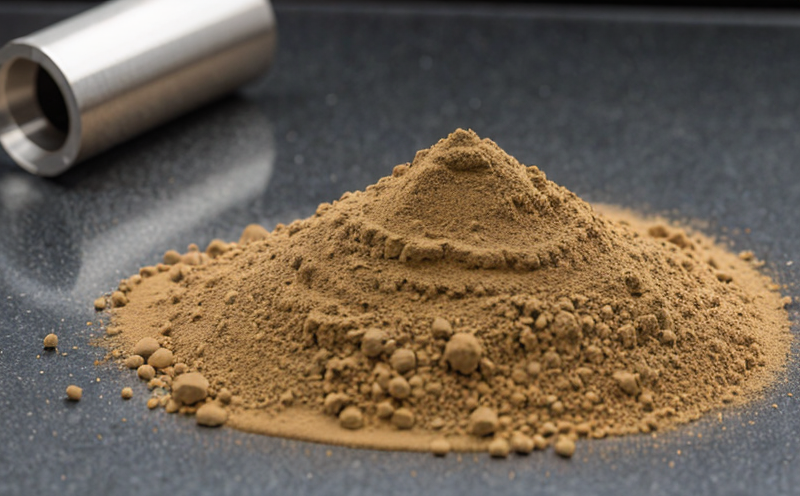ASTM D4603 Intrinsic Viscosity of Polyethylene Terephthalate Testing
The intrinsic viscosity (IV) test as per ASTM D4603 is a critical characterization method for determining the molecular weight and structure of polyethylene terephthalate (PET). This test measures the solution behavior of PET in a defined solvent, typically phenol. The intrinsic viscosity value provides insights into the polymer's average chain length and molecular structure, which are essential parameters for quality control, process optimization, and product development.
The ASTM D4603 method is widely used across industries such as plastics manufacturing, textile fibers, and packaging materials. By accurately measuring IV, manufacturers can ensure consistent product quality, optimize production processes, and meet regulatory requirements. The test is particularly important for PET applications where the molecular weight distribution significantly impacts performance characteristics like toughness, stiffness, and thermal stability.
The testing process involves dissolving a known mass of PET in phenol at specific concentrations to prepare solutions of different viscosities. These solutions are then subjected to a viscometer, typically an Ostwald viscometer or capillary viscometer, where the time taken for a fixed volume to flow out is measured. The intrinsic viscosity is calculated using the Huggins equation and Henry's law.
Accurate measurement of intrinsic viscosity requires precise control over several variables including solvent purity, temperature, and concentration. These factors must be strictly adhered to ensure consistent results that are reproducible and reliable. The test also involves meticulous sample preparation, which includes cleaning, drying, and weighing the PET samples with high precision.
The ASTM D4603 method is part of a broader suite of analytical techniques used in raw material characterization. It provides essential data for understanding the properties and performance potential of PET materials. This information is crucial for quality assurance, process control, and ensuring compliance with industry standards such as ISO 9001 and ASTM F2596.
The intrinsic viscosity test not only aids in product development but also supports environmental sustainability efforts by enabling the production of more efficient and sustainable materials. By optimizing PET molecular weight through this testing method, manufacturers can reduce raw material consumption and energy use during processing, contributing to a greener manufacturing process.
Why It Matters
The intrinsic viscosity test is pivotal in the quality control of PET products. Accurate IV measurements ensure that the final product meets specified performance criteria and regulatory standards. This testing method helps manufacturers identify potential issues early in the production process, allowing for timely adjustments to improve product quality.
- Quality Control: Ensures consistent product quality across batches by providing a reliable measure of PET molecular weight.
- Process Optimization: Identifies optimal processing conditions that enhance the performance and efficiency of manufacturing processes.
- Regulatory Compliance: Supports adherence to international standards, such as ASTM F2596, ensuring compliance with industry regulations.
In addition to these benefits, the intrinsic viscosity test plays a crucial role in product development. By providing detailed insights into PET molecular structure and properties, this method enables the creation of more advanced materials that meet evolving market demands for performance and sustainability.
Environmental and Sustainability Contributions
The intrinsic viscosity test contributes significantly to environmental sustainability efforts by aiding in the development of more efficient and sustainable PET products. By optimizing the molecular weight of PET through accurate IV measurements, manufacturers can reduce raw material consumption during production processes. This not only decreases energy use but also minimizes waste generation, leading to a lower carbon footprint.
The test also supports the circular economy by enabling better recycling practices. Understanding the intrinsic properties of PET aids in designing products that are easier to recycle and repurpose, thus extending their lifecycle and reducing environmental impact. Furthermore, the data obtained from IV testing can inform the development of biodegradable or recycled PET variants, contributing to more sustainable manufacturing practices.
By integrating ASTM D4603 into production processes, manufacturers can make informed decisions that enhance both product performance and environmental responsibility. This approach not only benefits the industry but also aligns with global sustainability goals, promoting a greener future for all.
Use Cases and Application Examples
- Fibers Manufacturing: Ensures consistent fiber quality by optimizing molecular weight to enhance strength and durability.
- Packaging Industry: Helps in selecting the appropriate PET grades for different packaging applications, ensuring optimal performance and cost-effectiveness.
- Provides critical data for fabric production, enabling the creation of high-performance textiles with improved mechanical properties.





